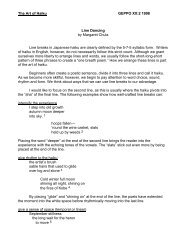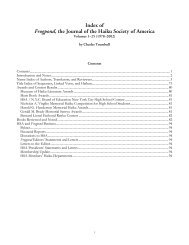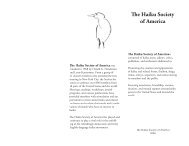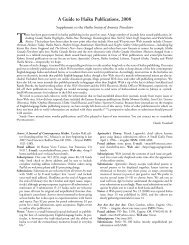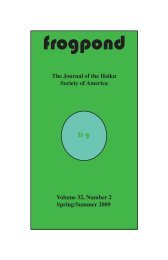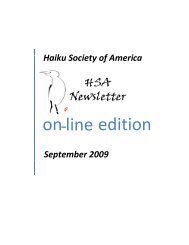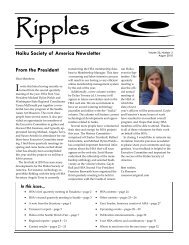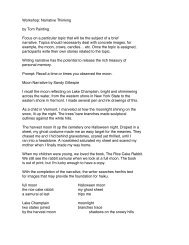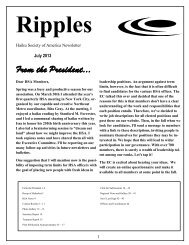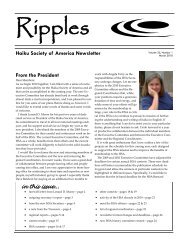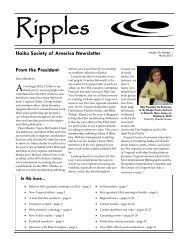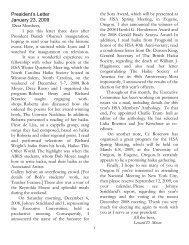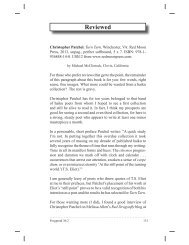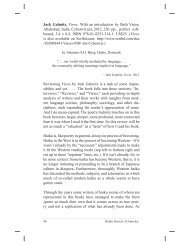Frogpond 34.3 • Autumn 2011 (pdf) - Haiku Society of America
Frogpond 34.3 • Autumn 2011 (pdf) - Haiku Society of America
Frogpond 34.3 • Autumn 2011 (pdf) - Haiku Society of America
Create successful ePaper yourself
Turn your PDF publications into a flip-book with our unique Google optimized e-Paper software.
parts <strong>of</strong> a review are a misrepresentation <strong>of</strong> facts I believe<br />
they should be corrected.<br />
1.What BR reported: The editors declare they are simply haibun<br />
practitioners themselves without authoritative or academic<br />
knowledge <strong>of</strong> haibun.<br />
What the editors wrote: …neither <strong>of</strong> us claims to be an ultimate<br />
authority on haibun or an academic expert in literary criticism.<br />
2. What BR reported: They then list eight favourable qualities<br />
<strong>of</strong> haibun, though they chose the haibun by reading them<br />
aloud and not having any pre-conceived criteria other than<br />
those apply [sic] to writing in general.<br />
What the editors wrote: Our critical approach has been based<br />
on what makes for good writing generally, and the sensitivity<br />
<strong>of</strong> each writer towards the haibun’s unique form: the effective<br />
blend and juxtaposition <strong>of</strong> poetry and prose.<br />
There are no definitive criteria for the haibun in English; it is an<br />
evolving genre which bears little resemblance to the original<br />
Japanese form whose name it bears. Nevertheless, for the purpose<br />
<strong>of</strong> selection, and despite our different writing backgrounds,<br />
we were easily able to agree on a list <strong>of</strong> desirable characteristics:<br />
Strong Openings<br />
Does the writing catch our attention immediately and encourage<br />
us to read on?<br />
Effective <strong>Haiku</strong><br />
Do the haiku complement the prose and avoid repeating what<br />
has already been said, or what will be said? Do they add another<br />
dimension to the haibun, a layer that would not be present if<br />
they were removed? Do they feel consciously placed within and<br />
against the setting <strong>of</strong> the prose and create effective transitions?<br />
Authenticity<br />
Does the haibun “feel” true? Is it an emotionally convincing<br />
account, regardless <strong>of</strong> whether it is factually true or not?<br />
. . . . . . . . . . . . . . . . . . . . . . . . . . . . . . . . . . . . . . . . . . . . . . . . . . . . . . . . . . . .<br />
108 <strong>Haiku</strong> <strong>Society</strong> <strong>of</strong> <strong>America</strong>



